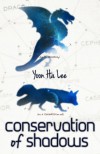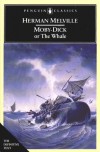Currently reading
Making a Point: The Persnickety Story of English Punctuation by David Crystal

Honestly, after I got into it, I enjoyed it so much that I was tempted to give it a higher rating, but I think I’ll stick to four stars. Because it did take me a little while to get into.
I’m not sure whether it was actually slower at the beginning, or whether I just wasn’t in the mood for it, but it took a while. Of course, after that it was hard not to notice the way Crystal’s humour infused the text and made a potentially dry read about punctuation into an amusing one. Some of it comes from relating personal stories, like the ones about how young children incorporate what they’ve learned about the punctuation system into their own writing in interesting ways on page 114:
“I recall one youngster (age about seven) who put a full stop at the end of every line of his story, regardless of sense. Another who put one between each word of the story title. Yet another had a fascination with semicolons. When I asked her why she used them so much, she replied that she liked the size and that they were pretty. And when I suggested a full stop was the normal way of ending a sentence, she looked very dubious, and observed that if you wanted to show something had come to an end, then surely the bigger the better?”
He also got points for referencing Terry Pratchett in his section on exclamation points. I was amused by some of the examples he used for when line break hyphenation rules could create miscues (e.g. the-rapists) or where you wouldn’t expect a phrase to be written as solid text due to pairs of vowels creating momentary uncertainty: freeenterprise amused me in particular. Hyphen hysteria made me smile too (p 264):
“And if you were in the habit of using the Shorter Oxford Dictionary, and had internalized its recommendations, you would have had a real shock in 2007, when the sixth edition was published and you saw that around 16,000 items had had their hyphens removed. Most of the changes had the hyphen replaced by a solid setting (pigeon-hole > pigeonhole, cry-baby > crybaby, bumble-bee > bumblebee), but quite a few ended up spaced (test-tube > test tube, ice-cream > ice cream, hobby-horse > hobby horse). Reactions ranged from the hysterical to the bemused. Some observers called it ‘hyphengate’.”
And with regards to the amalgamated town East Carbon-Sunnyside, I think the name “East Carbon Sunnyside” would be way cooler. It sounds like it would be good for a science fiction setting. C’mon, writers!
All in all, this was an amusing and informative read that didn’t try to lay down the rules (which are variable) so much as try to explore the different punctuation options available and how they can be used to effect in “making a point”. It also covered some of the history of US vs. UK usage and that of different publishing houses. He didn’t neglect the Internet usages and made some interesting points about the default lack of ending punctuation in most text messaging leading to the ability to convey subtleties in tone by purposefully including it in certain situations.
Recommended.
[Aside: There seems to some variation as to whether the subtitle says “pernickety” or “persnickety”. My copy reads Making a Point: The Persnickety Story of English Punctuation. Now, is that UK vs. US usage? I would say “persnickety”, personally. I’m also now overly conscious of when I decide to use quotation marks over italics.]
 2
2














